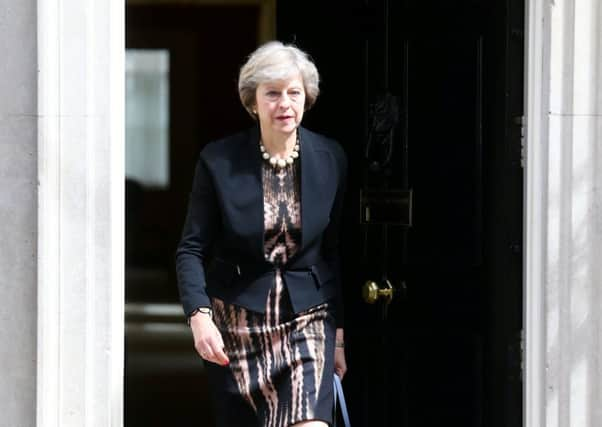Theresa May heads Tory leadership contest as Stephen Crabb bows out


The Home Secretary received 165 votes in the first round of the Tory leadership race, with former defence secretary Liam Fox eliminated after winning the support of 16 MPs and Mr Crabb withdrew after finishing fourth on 34.
The Work and Pensions Secretary said he was now backing Mrs May, insisting “there is only one candidate” to unite the Tories and form a “cohesive and strong” government. Dr Fox also backed Mrs May, stressing “experience matters”. Michael Gove, who finished in third place on 48 votes behind Andrea Leadsom with 66, vowed he would fight on.
Advertisement
Hide AdAdvertisement
Hide AdThe two candidates who head the final round of MPs’ votes will go forward to a postal ballot of party members to select a new Conservative leader – and prime minister – in a contest due to end on 9 September. After dropping out today, Mr Crabb said: “I entered this leadership race with the overriding goal of putting two themes at the heart of the debate – unity for our divided nation and opportunity to tackle disadvantage in particular.
“And I’ve been overwhelmed by the support I’ve received from colleagues, those who voted for me today but those who didn’t as well, but who made the point to me that they share my one-nation vision and they want that one nation vision to be at the heart of the next Conservative government.
“I think tonight we need to recognise that there is only one candidate in a position to unite our party and to form a cohesive and strong government, which our country needs at this time.
“I mean this is a really, really serious moment for this country and so I’ve taken the decision that I won’t put my name forward to the next round of voting but instead of that I’ll be lending my wholehearted support to Theresa May, who is overwhelmingly in the best position to be the next prime minister and the leader of the Conservative Party.”
Mr Gove stressed the need for a prime minister who campaigned for Brexit, unlike Mrs May, and said he would stay in the race.
He said: “I am delighted by the support I have received from colleagues. It reflects the optimistic message that I’ve been putting forward.
“Now that Britain has voted to leave, I think the country deserves to have a leader who believes in Britain outside the European Union and who also has experience at the highest level of government.
“I hope that in the days to come, I’ll be able to convince my colleagues that I should be one of the candidates that Conservative party members can choose from. I think they should have a choice between two candidates of experience, two candidates who have delivered in government departments.
Advertisement
Hide AdAdvertisement
Hide Ad“I think that the message I have of optimism and hope about Britain’s bright future outside the European Union is shared by many Conservative members and voters – indeed by a majority of the country.”
Welcoming her win, Mrs May said: “There is a big job before us – to unite our party and the country, to negotiate the best possible deal as we leave the EU, and to make Britain work for everyone.
“I am the only candidate capable of delivering these three things as Prime Minister, and tonight it is clear that I am also the only one capable of drawing support from the whole of the Conservative party.
“I look forward to continuing the debate about Britain’s future, in parliament and across the country.”
Despite her overwhelming support among MPs, Mrs May will be all too aware that in the two previous contests conducted under the present rules, initial frontrunners Ken Clarke and David Davis went on to be rejected by grassroots members.
As a supporter of the Remain vote in last month’s EU referendum, the Home Secretary is vulnerable to claims by eurosceptic rivals that the largely Brexit-backing membership requires a leader who actively campaigned to Leave.
And she has faced criticism over her refusal to give firm assurances that European Union nationals would be allowed to remain in the UK.